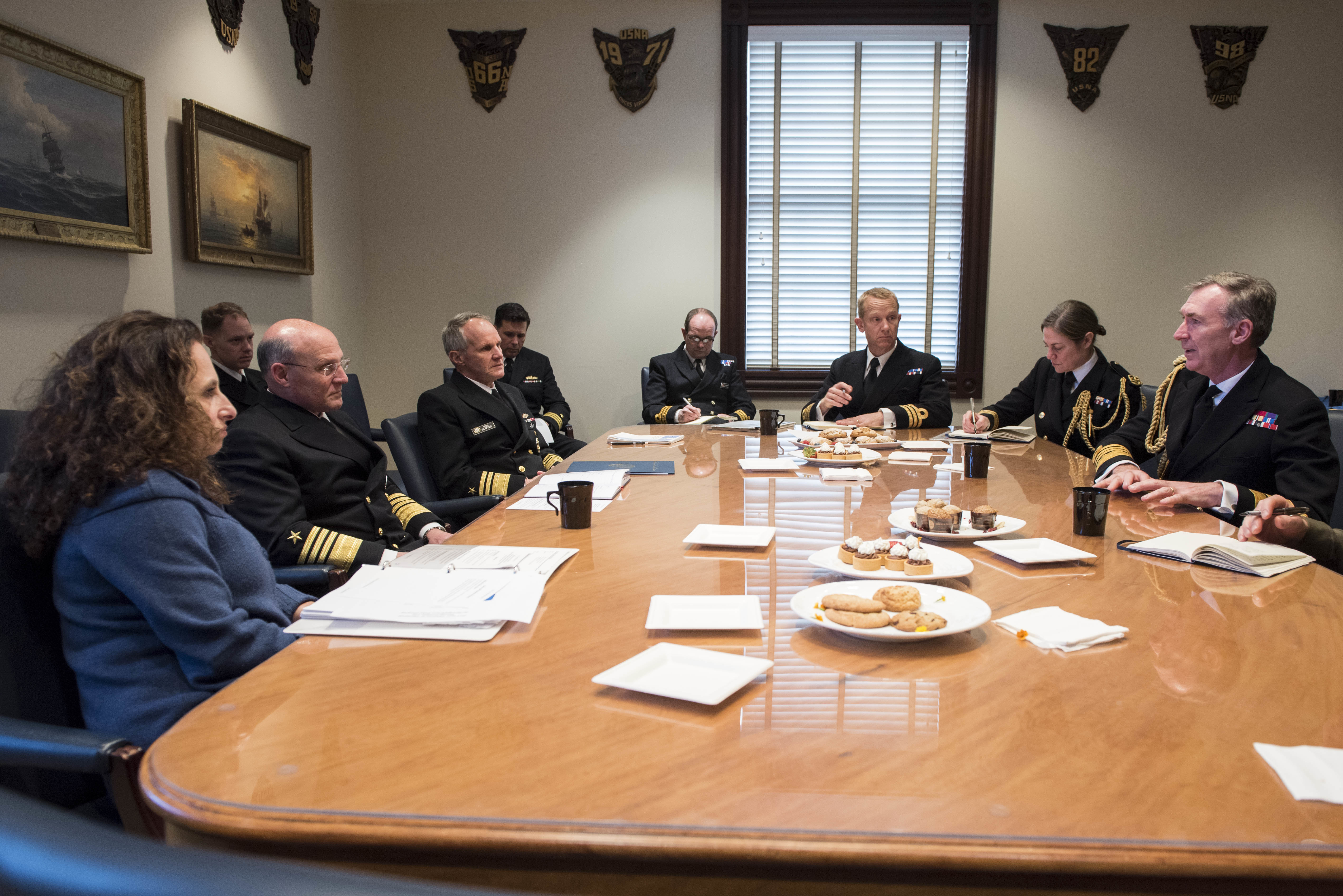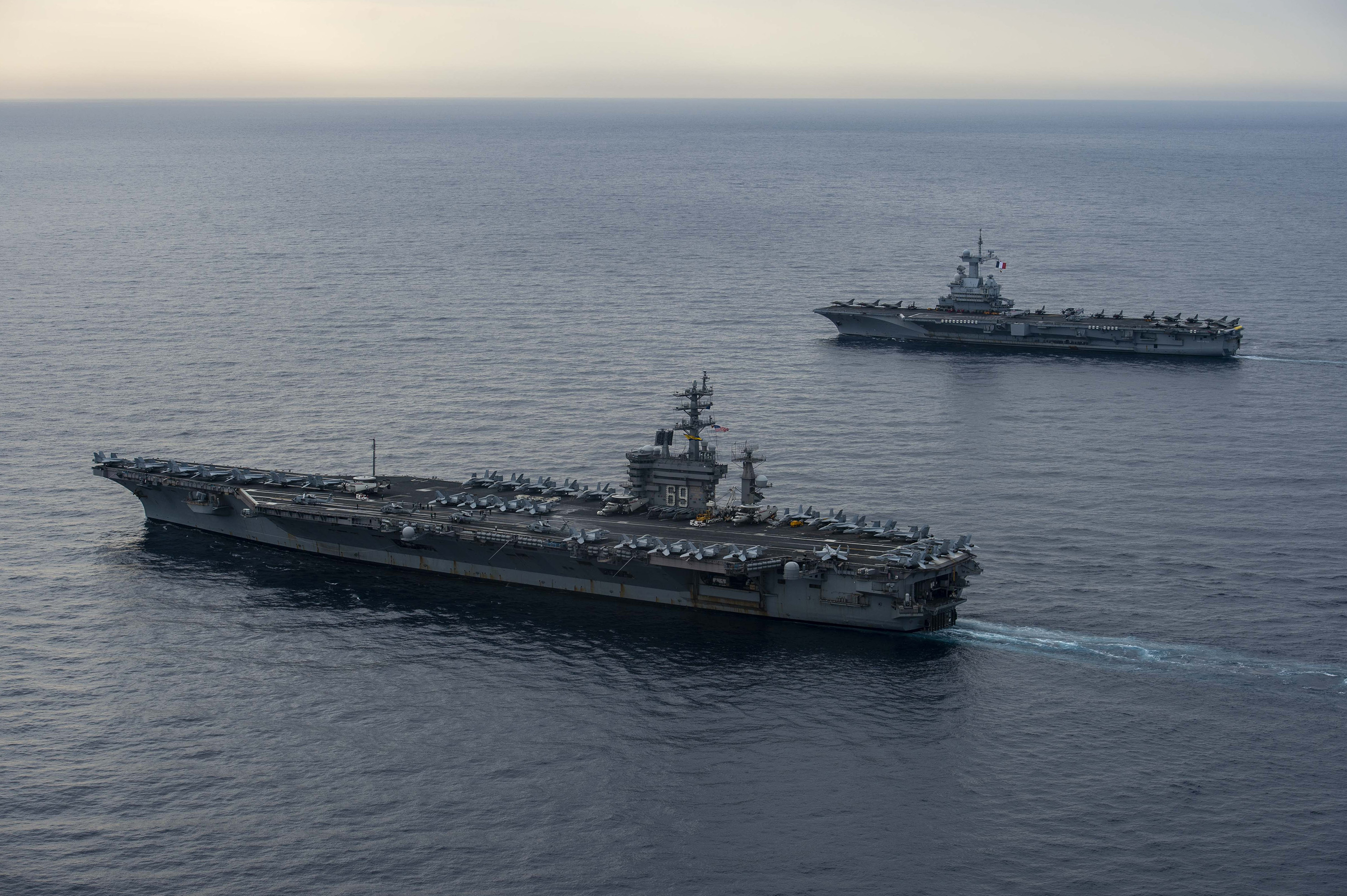
The U.S., U.K. and French heads of navies met virtually today for their annual trilateral maritime talk, aimed at advancing warfighting interoperability and deepening cooperation between the three NATO allies, according to a Navy statement.
Chief of Naval Operations Adm. Mike Gilday, First Sea Lord Adm. Tony Radakin and Chief of Naval Staff Adm. Christophe Prazuck talked via video teleconference rather than hold the previously scheduled meeting in London, due to COVID-19 travel restrictions. During the talk, they addressed ongoing maritime security challenges and ways to expand their cooperation at sea.
“Together, with my British and French counterparts, we reaffirm our commitment to our global partnership and responsibility to a free and open maritime commons,” Gilday said in a Navy news release.
“Through continued dialogue and shared lessons learned, we are strengthening our forces’ interoperability and collective ability in upholding a rules-based international order at sea.”
In March 2017, the three navies signed an agreement that would pave the way to closer cooperation in strategic areas such as anti-submarine warfare and aircraft carrier operations. Since that time,

The Royal Navy has partnered with both the U.S. and France as it restarts its carrier operations after taking a break earlier in the 2000s. HMS Queen Elizabeth (R08) visited the East Coast in the fall of 2018 to conduct testing with American F-35 Lightning II Joint Strike Fighters, ahead of a maiden deployment that will include a squadron of U.S. Marine Corps F-35Bs. Royal Navy leaders said during the visit that they hoped to develop carrier strike group operations that were compatible with U.S. and French operations – partly to create a larger combined carrier force for the “good guys,” and partly because both the U.K. and France were short on carrier escorts and would have to rely on allies to supplement their carrier operations.
Earlier this year, USS Dwight D. Eisenhower (CVN-69) and FS Charles de Gaulle (R91) participated in cross-deck interoperability exercises in the Mediterranean Sea before IKE transited the Suez Canal to enter U.S. 5th Fleet and de Gaulle continued on its “Foch” deployment in the Mediterranean and into the Northern Atlantic.
On the anti-submarine warfare side of the portfolio, U.S. and U.K. warships patrolled the Barents Sea in May, marking the first time a U.S. surface ship had entered those northern waters since the Cold War. Three Spain-based Arleigh Burke-class Aegis destroyers – USS Donald Cook (DDG-75), USS Porter (DDG-78) and USS Roosevelt (DDG-80) – along with fast combat support ship USNS Supply (T-AOE-6) and Royal Navy frigate HMS Kent (F 78) sailed around the waters north of Russia to “assert freedom of navigation and demonstrate seamless integration among allies,” USNI News reported at the time.
In addition to live operations, the three nations are also participating in an ongoing wargaming series. The first trilateral wargaming event was held by the U.S. Navy last year and focused on anti-submarine warfare. The Royal Navy will host the next wargame this year focused on multi-carrier operations – likely to be a virtual event, USNI News understands – and France will host its game in 2021.
“I am delighted to have had the opportunity to take part in these discussions. The long-standing friendship between our three countries is extremely important, and our relationship continues to deepen as we work ever more closely together,” Radakin said in the news release.
“These talks allow us to learn from one another, improve our interoperability and strengthen our collaboration, both as navies and as nations.”
“Our trilateral cooperation has been the decisive factor that has enabled us to fight and win, together, in all major world conflicts for more than a century,” Prazuck said in the news release.
“It remains the cornerstone of our high-end defensive capabilities.”





